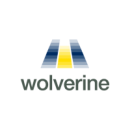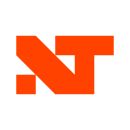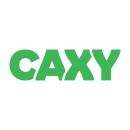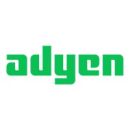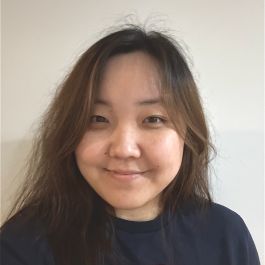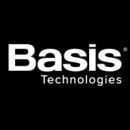According to the Chicagoland Chamber of Commerce, the city of Chicago has the highest number of women founders in tech, with 34 percent of startups in the city being founded by women. That’s over two times the global average and a higher percentage than any of the top 20 tech hubs.
So while gender equity in tech still has a long way to go, Chicago is a good model for what’s possible for women in other tech hubs in the future.
In honor of Women’s Equality Day, Built In — a woman-founded Chicago-based tech company — spoke with five women in tech about their career paths, challenges and triumphs as women in engineering.
Wolverine Trading includes a number of diversified financial institutions specializing in proprietary trading, asset management, order execution services and technology solutions.
Describe your experience as a woman in engineering. What are some of the challenges you’ve faced and how have you overcome them?
When I was in college, I was often the only woman in my project group, and I had to fight more than I would have liked to work on more than just the surface-level tasks like improving the aesthetic of the UI or creating the PowerPoint. What eventually worked best for me when facing assumptions that I wouldn’t want to work on the core of the project was to speak up and request a larger part. Then, if I was countered with something along the lines of, “You would be better at that job than us,” I would ask why they thought that and push them to vocalize exactly why they held that opinion.
Since joining Wolverine right out of college, I’ve only ever felt welcomed as a valued member of the team. The positive environment that Wolverine fosters has made me feel that my contributions truly make an impact and has helped me expand my technical knowledge.
What are your professional goals and how has your current company enabled you to pursue them? What career growth resources/opportunities are available?
Since the start of my time at this company, Wolverine has made it easy to pursue my professional goals of enjoying and being challenged by the work that I do, seeing the impact of my changes and being a valued member of a team. I have a say in the work that I take on and contribute to a variety of the different areas that my team is responsible for, so I’m constantly learning something new. I’m also involved in the full lifecycle for new features through the planning, implementation, testing, deployment and monitoring instead of just being a single point on the assembly line. Wolverine also promotes a smooth transition process for interns and new hires with the mentorship program. For the entirety of my internship and the first six months of my time as a full-time employee, another woman at the company was assigned as my mentor. We would get lunch once a month, and it was nice to hear about the path that someone else had taken from their first day to their current position and to have a point of contact with someone outside of my own team.
What advice do you have for women in engineering or other technical roles regarding how to identify a company and team that will support their growth and development?
One thing that has supported me in my current role has been the opportunities to form relationships with other women in the firm through the mentorship program, my team and our Women’s ERG (WOW). Talking with women who have been at Wolverine for several years and have chosen to stay with their teams because they enjoy their work and are achieving their professional goals was reassuring when I first joined. For women entering a technical role, I would encourage them to find opportunities to network with other women within their company. When working in a field where most of the employees are men, it’s especially helpful as someone just joining the company to hear about another woman’s perspective and experience.
NinjaTrader Group is a fintech company that provides software and brokerage services to help traders work smarter.
Describe your experience as a woman in engineering. What are some of the challenges you’ve faced and how have you overcome them?
Being the first woman in an engineering leadership role at NinjaTrader has had its challenges. Early on, it was difficult to feel like I belonged in rooms where I didn’t see many people like me. I had to learn to speak up, even when it felt intimidating, and build a network of mentors and peers I could lean on. What’s helped me most is focusing on the impact I want to make rather than worrying about fitting in.
At NinjaTrader, I’ve been fortunate to work with a team and leadership that value my perspective and support me in driving meaningful change. Teammates here genuinely want to hear different viewpoints and ideas, and that has made it so much easier to build confidence and push through those challenges.
What are your professional goals and how has your current company enabled you to pursue them? What career growth resources/opportunities are available?
One of my biggest goals has been to grow as a leader while also continuing to build a strong platform that makes life easier for our developers and better for our traders. At NinjaTrader, I’ve been able to do exactly that. I’ve had the freedom to drive initiatives that make a real impact.
What I appreciate most about working here is the trust and support we get from leadership. We’re encouraged to take ownership of projects, try new things and keep learning. Just as importantly, I’ve got a team that brings those ideas to life. They’re the ones doing the hard work to make big changes happen.
At NinjaTrader, there are clear opportunities for career growth. Whether you want to deepen your technical expertise or take on leadership responsibilities, there’s room to advance and support to help you get there.
What advice do you have for women in engineering or other technical roles regarding how to identify a company and team that will support their growth and development?
In interviews, don’t hesitate to ask about mentorship and career growth paths. For me, NinjaTrader has been that kind of place. From day one, I felt supported in bringing new ideas to the table and taking ownership of big initiatives. My advice is to trust your instincts. If a company makes you feel welcome and gives you room to grow from the start, that’s usually a great sign.
Ask yourself: Will I feel respected here? Will I get opportunities to work on meaningful projects? Does leadership invest in its people?
As a platform/site reliability engineering manager, I also advise women in engineering to explore site reliability engineering, even if it feels a little intimidating at first. Site reliability engineering work really matters. You’re the one making sure systems stay up, things run smoothly and other engineers have the tools they need to do their jobs well. It’s definitely challenging but also super rewarding. You get to work across the entire stack, from cloud infrastructure and networking to continuous integration/continuous delivery pipelines, observability tools and application performance. It’s a role that helps you build a broad and highly valuable technical skill set.
Caxy is a Chicago-based software consulting and custom software development agency.
Describe your experience as a woman in engineering. What are some of the challenges you’ve faced and how have you overcome them?
My journey into engineering is a bit unconventional. I didn’t study computer science in college. I started in quality assurance, moved into service delivery and later completed a full-stack bootcamp at General Assembly. My path gave me unique experiences, but also challenges. Before officially moving into development, I was passed over for a manager role I was already informally doing, despite a client’s direct request, because another man had similar experience on a different project. It was a harsh but formative reminder that exceeding expectations doesn’t always guarantee opportunity.
Once I became a developer, I wrestled with imposter syndrome. It took years to work through, but I eventually learned to separate real knowledge gaps from self-doubt. Code review was critical — giving and receiving thoughtful feedback across projects accelerated my growth and built confidence. At Caxy, junior developers are encouraged to speak first in architecture meetings, which gave me space to find my voice. I’ve also learned to support ideas with data and preparation, especially when I’m not the loudest in the room. That persistence has helped me earn trust, advocate effectively and continue to grow.
What are your professional goals and how has your current company enabled you to pursue them? What career growth resources/opportunities are available?
At Caxy, professional growth follows clear and supportive paths. After moving from junior tomid-level developer, I expressed interest in leadership during a check-in with operations and HR. I was given a 123 Grow Plan, a roadmap of the skills and experiences needed to reach the next level. Through hands-on work and focused self-learning, I became a Dev Lead in training and was later promoted to development lead. I’ve since advanced to a technical director and continue to grow through mentorship, coaching and goal setting. My next goal is a senior leadership role, and I believe that is achievable with the support and resources at Caxy.
One of the most impactful parts of growth at Caxy is the consistent feedback cycle. Project-based teams keep communication flowing and ensure feedback is timely and actionable. Performance reviews are never surprises and are based on merit. Promotions aren’t limited by role caps, so anyone who meets expectations is eligible. We also use a role numbering system that adds clarity. Combined with mentorship, robust self-learning resources, and frequent exposure to new tools and technologies, growth is constant. After nine years, I’m still learning every day.
What advice do you have for women in engineering or other technical roles regarding how to identify a company and team that will support their growth and development?
When looking for a company that supports career development, I focus on a few key areas. First, I ask about available career paths. Some flat organizations lack clear growth tracks, which can limit development. That said, some flat structures still allow you to carve out your own role, so it is worth exploring further. I also look at female representation. Are there women in engineering leadership or technical roles, or only in non-technical positions? It helps to see others who have navigated similar paths, even if they are not direct mentors. Representation can also lead to advocacy and sponsorship. External communities for women in tech can be another great support system. When scanning a job posting, I look for terms like professional development budget, collaborative, pair programming, ownership and feedback-driven. These signal a growth-oriented, team-based culture. During interviews, I ask about tenure and how feedback is delivered. If no one stays or if feedback is unclear, that may be a red flag for long-term opportunity.
By providing end-to-end payments capabilities, data-driven insights and financial products in a single solution, Adyen helps businesses achieve their ambitions faster.
Describe your experience as a woman in engineering. What are some of the challenges you’ve faced and how have you overcome them?
I’ve had a diverse range of experiences and have had the opportunity to explore different sub-industries such as fintech, social media and big data, and I’ve also worked in different regions.
During my tenure in tech, I’ve had great and not-so-great managers. No matter where you are or what you do, your manager is the most significant stakeholder in your career progression and can make or break your experience with an employer. Great managers will be transparent, not just honest, about your performance; i.e., preemptive feedback. But they also understand that life happens, and you can’t give your 100 percent every day. They understand the unique intersection and challenges faced by women in software engineering such as the balance between imposter syndrome and actually helping us uncover areas of improvement.
I’ve also had not-so-great managers who had the ability to impact morale. It’s important to spot those situations early on, so you can be strategic about changing your circumstances, such as a team or company. Staying or leaving is a matter of introspection; ultimately, you have to choose the option that gives you peace of mind.
What are your professional goals and how has your current company enabled you to pursue them? What career growth resources/opportunities are available?
My professional goals have organically evolved as I’ve gained more experience and self-confidence in this industry. I’ve gone from fulfilling small tasks given to me to leading people and large technical projects independently.
At Adyen, I always feel highly encouraged to speak up, ask questions and share a solution. It has now become second nature to me, and I extend the same environment of encouragement for the rest of my team, too. Our roles are also pleasantly fluid — I am not restricted to the role of a programmer who only sits in front of a screen. I interact with product managers, account managers, tech support and pricing analysts to a point where I get to be in their shoes and understand their perspectives or issues, too. This is quite unique to Adyen, and I hope to continue growing holistically here.
What advice do you have for women in engineering or other technical roles regarding how to identify a company and team that will support their growth and development?
Always follow your gut. You’re not just gauging a company, you’re also gauging the people you will work with every day. Very simply, if the “vibes are off,” find out why. Prepare questions that formulate your doubts in a palatable fashion, and ask for specific examples to help with clarity of thought. For example, if you want to find out about growth in your role, ask your interviewer about promotions they have achieved while at the company and how they must have prepared for their promotion with their manager. You can also ask how projects are prioritized and allocated in the team or the wider organization. If the prioritization is based on quantifiable metrics, that’s a great sign for your growth because you can use the metrics to measure impact when you deliver on a project.
It takes a village to grow yourself from an intern to a position of leadership as a woman in engineering. You should carefully choose the people who comprise this village, as they should be the people who (positively) challenge you, mentor you, give you credit even in a room where you may not be present and have your back when things get tough.
Basis Technologies is a global automation software provider for enterprise marketers, bringing programmatic, site-direct, advanced TV, search and social together through a single interface.
Describe your experience as a woman in engineering. What are some of the challenges you’ve faced and how have you overcome them?
I’ve been in fortunate spaces in my career where I did not feel the need to be conscious of my position, status or rank as a woman. The teams I’ve been a part of have embraced me and treated me no differently than my male peers. My challenge was to see that beyond the day-to-day work, there is a community within and outside my organization that celebrates women in technology. I’ve realized that it’s because of these communities and surrounding initiatives that I got to be in a comfortable environment where I’m not treated differently for being a woman. Giving back and being a more active member of these communities is something I’d like to work on.
What are your professional goals and how has your current company enabled you to pursue them? What career growth resources/opportunities are available?
I think the admirable part of Basis and our leadership is that they want employees to be the best version of ourselves in and outside of work. I’m really happy with where I am in both my life and career right now, and a big reason for that is because of the culture Basis actively cultivates. My manager and the company have sincerely been the greatest at providing opportunities for growth. I’m grateful for having the chance to get more experience with a certain tech stack when I’ve expressed interest. My main professional goal is to continue being a better engineer and coworker than I was yesterday.
What advice do you have for women in engineering or other technical roles regarding how to identify a company and team that will support their growth and development?
Research the values and culture that the company stands for. Do they embrace DEI practices and foster an inclusive environment? Are women represented in their hiring practices? These are some of the questions I’d ask while evaluating companies. I also feel satisfaction with working for a company that invests in its employees. Whether it’s through their main website or anecdotes, people should explore different resources online to see if a company is providing benefits that align with their needs and interests. Finally, I believe finding evidence of seasoned tenure with career growth through sites like LinkedIn is a pretty good indicator of a company supporting their engineers as well.




